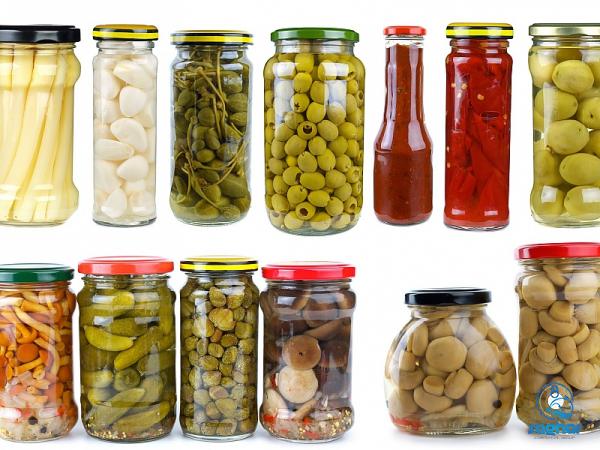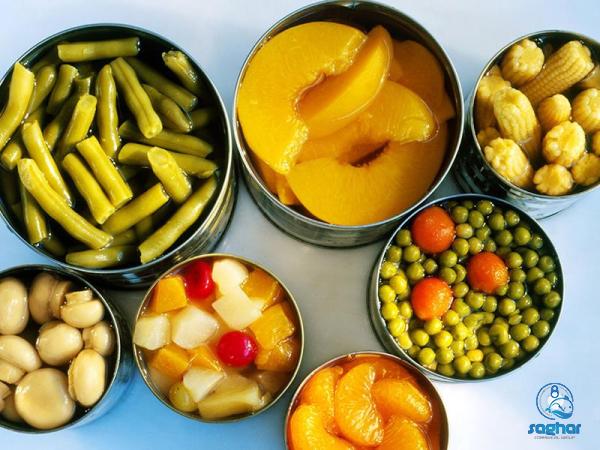A Convenient and Nutritious Addition to Your Diet Introduction: Canned fruit has long been appreciated for its convenience, extended shelf life, and ability to provide essential nutrients all year round. Despite concerns about its nutritional value compared to fresh fruit, recent improvements in the canning process have made it an increasingly popular choice for consumers. This article aims to explore the benefits of canned fruit, highlight its nutritional content, discuss its role in a healthy diet, address common misconceptions, and provide some creative ideas for incorporating canned fruit into your meals. 1. Convenience and Long Shelf Life: One of the most significant advantages of canned fruit is its convenience. Canned fruits are readily available in grocery stores, making them accessible to consumers regardless of their geographical location or season. Unlike fresh fruit, which often spoils quickly, canned fruit has a long shelf life, ensuring that it remains in good condition for extended periods. This feature allows individuals to enjoy a diverse range of fruits, even when they are out of season, without compromising on quality. 2. Nutritional Value of Canned Fruit: Canned fruit can offer a range of key nutrients. While the canning process does result in some nutrient loss, many essential vitamins and minerals are retained. The extent of nutrient loss depends on various factors such as the fruit type, the canning method, and the storage conditions. Some vitamins, such as vitamin C, may experience greater degradation during processing. However, others, like vitamin A and dietary fiber, are generally well-preserved. Additionally, the canning process can enhance the bioavailability of certain nutrients, making them more easily absorbed by the body. 3. Nutritional Content of Canned Fruit: Canned fruit can provide a wide array of essential nutrients. Most canned fruits contain high levels of vitamin C, which is vital for the immune system, wound healing, and collagen production. Canned fruits, such as peaches and apricots, are also rich in vitamin A, which supports healthy vision and proper growth. Other important nutrients found in canned fruit include potassium, dietary fiber, and antioxidants, which contribute to heart health, digestion, and reduce the risk of chronic diseases.
canned food
 4. Role of Canned Fruit in a Healthy Diet: Including canned fruit as part of a well-balanced diet can offer numerous health benefits. The dietary fiber present in canned fruit aids in digestion and contributes to the feeling of fullness, promoting healthy weight management. Potassium, another key nutrient found in canned fruit, helps maintain normal blood pressure levels and supports optimal muscle and nerve function. Moreover, canned fruit has a lower glycemic index compared to canned fruit juices or sweetened fruit products, making it a suitable option for individuals with diabetes or those looking to manage their blood sugar levels. 5. Addressing Misconceptions about Canned Fruit: Misconceptions about the nutritional value of canned fruit persist, often leading to its exclusion from healthy eating guidelines or diets. However, it is essential to debunk these misconceptions and recognize that canned fruit can still be a nutritious choice. While fresh fruit is preferred by many due to its superior taste and texture, canned fruit offers convenience and preserves important nutrients. By considering the quality and packaging of canned fruit, consumers can find nutritious options that align with their dietary preferences. 6. Creative Ways to Incorporate Canned Fruit: Canned fruit can be enjoyed in various delicious and creative ways. Some ideas include adding canned peaches or pineapple to a morning smoothie, incorporating canned cherries or mixed fruit into a fruit salad, or using canned pears or applesauce as a substitute for oil in baking recipes. Additionally, canned fruit can be used as a topping for yogurt, oatmeal, or pancakes, or even as a base for homemade jams and preserves.
4. Role of Canned Fruit in a Healthy Diet: Including canned fruit as part of a well-balanced diet can offer numerous health benefits. The dietary fiber present in canned fruit aids in digestion and contributes to the feeling of fullness, promoting healthy weight management. Potassium, another key nutrient found in canned fruit, helps maintain normal blood pressure levels and supports optimal muscle and nerve function. Moreover, canned fruit has a lower glycemic index compared to canned fruit juices or sweetened fruit products, making it a suitable option for individuals with diabetes or those looking to manage their blood sugar levels. 5. Addressing Misconceptions about Canned Fruit: Misconceptions about the nutritional value of canned fruit persist, often leading to its exclusion from healthy eating guidelines or diets. However, it is essential to debunk these misconceptions and recognize that canned fruit can still be a nutritious choice. While fresh fruit is preferred by many due to its superior taste and texture, canned fruit offers convenience and preserves important nutrients. By considering the quality and packaging of canned fruit, consumers can find nutritious options that align with their dietary preferences. 6. Creative Ways to Incorporate Canned Fruit: Canned fruit can be enjoyed in various delicious and creative ways. Some ideas include adding canned peaches or pineapple to a morning smoothie, incorporating canned cherries or mixed fruit into a fruit salad, or using canned pears or applesauce as a substitute for oil in baking recipes. Additionally, canned fruit can be used as a topping for yogurt, oatmeal, or pancakes, or even as a base for homemade jams and preserves.
Specifications of canned food
 Conclusion: Canned fruit offers undeniable convenience and, when chosen wisely, can provide important nutrients to support a balanced diet. While it may not always match the flavor and texture of fresh fruit, its extended shelf life, accessibility, and nutritional value make it an excellent alternative. By understanding the nutritional content of canned fruit and addressing common misconceptions, individuals can confidently incorporate it into their meals, enjoying its benefits throughout the year.Title: Canned Fruit: A Convenient and Nutritious Addition to Your Diet Introduction: Canned fruit has long been appreciated for its convenience, extended shelf life, and ability to provide essential nutrients all year round. Despite concerns about its nutritional value compared to fresh fruit, recent improvements in the canning process have made it an increasingly popular choice for consumers. This article aims to explore the benefits of canned fruit, highlight its nutritional content, discuss its role in a healthy diet, address common misconceptions, and provide some creative ideas for incorporating canned fruit into your meals. 1. The Growing Market for Canned Fruit: The global canned fruit market has been experiencing steady growth in recent years. The increasing demand for convenience foods, growing urbanization, and changing lifestyles have contributed to this trend. Additionally, the rising awareness about the health benefits of consuming fruit and the desire for year-round availability have further fueled the demand for canned fruit. As a result, numerous manufacturers have entered the market, offering a wide variety of canned fruit options to cater to different tastes and preferences. 2. Nutritional Considerations in Canned Fruit: When considering the nutritional value of canned fruit, it is important to be aware of some factors that may affect its content. Variations in the canning process, such as the addition of syrup or juice, can impact the calorie and sugar levels of the fruit. It is advisable to choose canned fruit packed in water or natural juice rather than heavy syrups to avoid excessive sugar intake. Additionally, opting for fruit packed in its own juice helps retain the natural flavors and nutritional integrity of the fruit.
Conclusion: Canned fruit offers undeniable convenience and, when chosen wisely, can provide important nutrients to support a balanced diet. While it may not always match the flavor and texture of fresh fruit, its extended shelf life, accessibility, and nutritional value make it an excellent alternative. By understanding the nutritional content of canned fruit and addressing common misconceptions, individuals can confidently incorporate it into their meals, enjoying its benefits throughout the year.Title: Canned Fruit: A Convenient and Nutritious Addition to Your Diet Introduction: Canned fruit has long been appreciated for its convenience, extended shelf life, and ability to provide essential nutrients all year round. Despite concerns about its nutritional value compared to fresh fruit, recent improvements in the canning process have made it an increasingly popular choice for consumers. This article aims to explore the benefits of canned fruit, highlight its nutritional content, discuss its role in a healthy diet, address common misconceptions, and provide some creative ideas for incorporating canned fruit into your meals. 1. The Growing Market for Canned Fruit: The global canned fruit market has been experiencing steady growth in recent years. The increasing demand for convenience foods, growing urbanization, and changing lifestyles have contributed to this trend. Additionally, the rising awareness about the health benefits of consuming fruit and the desire for year-round availability have further fueled the demand for canned fruit. As a result, numerous manufacturers have entered the market, offering a wide variety of canned fruit options to cater to different tastes and preferences. 2. Nutritional Considerations in Canned Fruit: When considering the nutritional value of canned fruit, it is important to be aware of some factors that may affect its content. Variations in the canning process, such as the addition of syrup or juice, can impact the calorie and sugar levels of the fruit. It is advisable to choose canned fruit packed in water or natural juice rather than heavy syrups to avoid excessive sugar intake. Additionally, opting for fruit packed in its own juice helps retain the natural flavors and nutritional integrity of the fruit.
buy canned food
 3. Quality Control Measures in Canned Fruit Production: To ensure the quality and safety of canned fruit, reputable manufacturers adhere to strict quality control measures. This includes sourcing high-quality fruits, employing advanced canning techniques, and implementing rigorous hygiene standards. Regular inspections and quality checks are conducted throughout the production process to identify any abnormalities or defects. Consumers can look for trusted brands and read labels carefully to ensure they are purchasing canned fruit that meets high quality and safety standards. 4. Health Benefits of Canned Fruit: Canned fruit can provide numerous health benefits, making it a valuable addition to a balanced diet. It offers a convenient way to incorporate various fruits into one’s daily routine, regardless of seasonal availability. The vitamins, minerals, and antioxidants present in canned fruit contribute to overall health and well-being. For example, peaches and apricots, commonly found in cans, are rich in antioxidants that help fight inflammation and protect against certain chronic diseases. 5. Cost-effectiveness and Accessibility: Canned fruit offers a cost-effective and accessible option for individuals and families looking to consume fruits regularly. Fresh fruit can sometimes be expensive, especially when out of season or in areas where fruits are not locally grown. Canned fruit provides an affordable alternative that does not compromise on the nutritional content. Its long shelf life also reduces the risk of wastage, making it a budget-friendly option for those looking to minimize food waste. 6. Sustainability and Environmental Considerations: While canned fruit plays a vital role in ensuring year-round availability and reducing food waste, it is essential to consider its environmental impact. The production and transportation of canned fruit require energy and resources. However, advancements in sustainable packaging, such as recyclable cans and reduced water usage in processing, are being implemented by many manufacturers to mitigate the environmental impact. Furthermore, choosing brands that prioritize sustainable sourcing practices can further contribute to minimizing the ecological footprint. 7. Understanding Labels and Nutritional Claims: When purchasing canned fruit, it is crucial to understand the information provided on labels, particularly regarding nutritional claims. Manufacturers often adhere to specific labeling regulations, which include stating the ingredients used, nutritional facts, and any added sweeteners or preservatives. Reading the labels can help consumers make informed choices and select products that align with their dietary needs and preferences.
3. Quality Control Measures in Canned Fruit Production: To ensure the quality and safety of canned fruit, reputable manufacturers adhere to strict quality control measures. This includes sourcing high-quality fruits, employing advanced canning techniques, and implementing rigorous hygiene standards. Regular inspections and quality checks are conducted throughout the production process to identify any abnormalities or defects. Consumers can look for trusted brands and read labels carefully to ensure they are purchasing canned fruit that meets high quality and safety standards. 4. Health Benefits of Canned Fruit: Canned fruit can provide numerous health benefits, making it a valuable addition to a balanced diet. It offers a convenient way to incorporate various fruits into one’s daily routine, regardless of seasonal availability. The vitamins, minerals, and antioxidants present in canned fruit contribute to overall health and well-being. For example, peaches and apricots, commonly found in cans, are rich in antioxidants that help fight inflammation and protect against certain chronic diseases. 5. Cost-effectiveness and Accessibility: Canned fruit offers a cost-effective and accessible option for individuals and families looking to consume fruits regularly. Fresh fruit can sometimes be expensive, especially when out of season or in areas where fruits are not locally grown. Canned fruit provides an affordable alternative that does not compromise on the nutritional content. Its long shelf life also reduces the risk of wastage, making it a budget-friendly option for those looking to minimize food waste. 6. Sustainability and Environmental Considerations: While canned fruit plays a vital role in ensuring year-round availability and reducing food waste, it is essential to consider its environmental impact. The production and transportation of canned fruit require energy and resources. However, advancements in sustainable packaging, such as recyclable cans and reduced water usage in processing, are being implemented by many manufacturers to mitigate the environmental impact. Furthermore, choosing brands that prioritize sustainable sourcing practices can further contribute to minimizing the ecological footprint. 7. Understanding Labels and Nutritional Claims: When purchasing canned fruit, it is crucial to understand the information provided on labels, particularly regarding nutritional claims. Manufacturers often adhere to specific labeling regulations, which include stating the ingredients used, nutritional facts, and any added sweeteners or preservatives. Reading the labels can help consumers make informed choices and select products that align with their dietary needs and preferences.
canned food + buy and sell
 8. Canned Fruit and Food Preservation: One of the primary benefits of canning fruit is the extended shelf life it provides. The canning process involves sealing the fruit in an airtight container, which helps preserve the quality and freshness of the fruit over time. This preservation method prevents spoilage and microbial growth, ensuring that the fruit remains safe to consume for an extended period. Canned fruit can be stored in pantries or cabinets, eliminating the need for refrigeration and freeing up space in the refrigerator. 9. Creative Ways to Use Canned Fruit: Incorporating canned fruit into a variety of dishes can enhance the flavor and nutrient profile of meals. Canned fruit can be used in both sweet and savory recipes. For example, canned peaches or pineapple can be added to stir-fries or used as a topping for desserts. Canned fruit can also be blended into sauces, incorporated into salsas, or used as a base for fruity smoothies. The versatility of canned fruit allows for endless culinary possibilities. 10. Choosing the Right Canned Fruit: To reap the maximum nutritional benefits from canned fruit, it is essential to make prudent choices. Look for canned fruit with minimal added sugars or syrups, preferably packed in water or natural juice. Opt for fruits that are ripe and harvested at their peak to ensure optimal taste and nutrient content. Choosing organic or locally sourced canned fruit may also be desirable for individuals who prioritize sustainability and prefer to avoid pesticides or genetically modified organisms (GMOs). Conclusion: Canned fruit offers convenience, extended shelf life, and nutritional benefits that make it an excellent addition to a healthy and balanced diet. With advances in the canning process and a wide variety of options available, consumers can enjoy the convenience of having fruit available year-round without sacrificing its nutritional value. By understanding the market trends, nutritional considerations, and tips for incorporating canned fruit into meals creatively, individuals can make informed choices to enhance their overall well-being.
8. Canned Fruit and Food Preservation: One of the primary benefits of canning fruit is the extended shelf life it provides. The canning process involves sealing the fruit in an airtight container, which helps preserve the quality and freshness of the fruit over time. This preservation method prevents spoilage and microbial growth, ensuring that the fruit remains safe to consume for an extended period. Canned fruit can be stored in pantries or cabinets, eliminating the need for refrigeration and freeing up space in the refrigerator. 9. Creative Ways to Use Canned Fruit: Incorporating canned fruit into a variety of dishes can enhance the flavor and nutrient profile of meals. Canned fruit can be used in both sweet and savory recipes. For example, canned peaches or pineapple can be added to stir-fries or used as a topping for desserts. Canned fruit can also be blended into sauces, incorporated into salsas, or used as a base for fruity smoothies. The versatility of canned fruit allows for endless culinary possibilities. 10. Choosing the Right Canned Fruit: To reap the maximum nutritional benefits from canned fruit, it is essential to make prudent choices. Look for canned fruit with minimal added sugars or syrups, preferably packed in water or natural juice. Opt for fruits that are ripe and harvested at their peak to ensure optimal taste and nutrient content. Choosing organic or locally sourced canned fruit may also be desirable for individuals who prioritize sustainability and prefer to avoid pesticides or genetically modified organisms (GMOs). Conclusion: Canned fruit offers convenience, extended shelf life, and nutritional benefits that make it an excellent addition to a healthy and balanced diet. With advances in the canning process and a wide variety of options available, consumers can enjoy the convenience of having fruit available year-round without sacrificing its nutritional value. By understanding the market trends, nutritional considerations, and tips for incorporating canned fruit into meals creatively, individuals can make informed choices to enhance their overall well-being.

Your comment submitted.